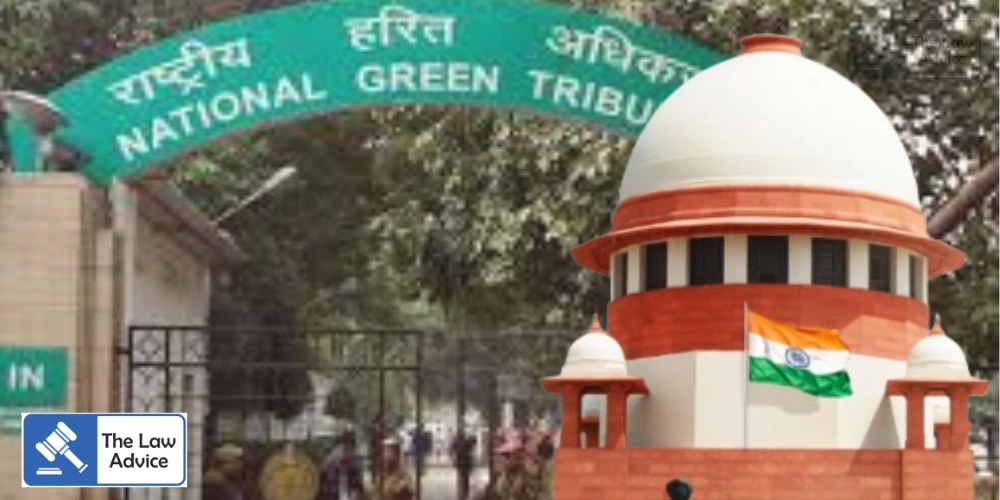New Delhi, Sept 2:
In a significant ruling on the functioning of the National Green Tribunal (NGT), the Supreme Court on Monday strongly criticized the tribunal for outsourcing its judicial responsibilities to expert committees, holding that the NGT must exercise its own adjudicatory powers instead of acting as a “rubber stamp” on external reports.
A Bench comprising Justice Manoj Misra and Justice Ujjal Bhuyan was hearing an appeal filed by M/s Triveni Engineering and Industries Ltd. against an order of the NGT which had imposed a hefty ₹18 crore compensation on the company for allegedly polluting water bodies by discharging untreated effluents.
The dispute arose from allegations that the appellant-company had been violating provisions of the Water (Prevention and Control of Pollution) Act, 1974 by:
• Illegally discharging effluents into water bodies,
• Diluting discharge beyond permissible limits, and
• Failing to maintain proper records.
Relying exclusively on a Joint Committee report prepared by the Central Pollution Control Board (CPCB), Uttar Pradesh Pollution Control Board (UPPCB), and the District Magistrate, the NGT found the company guilty.
In February 2022, the Tribunal held the company liable for violations, and in September 2022, directed it to pay environmental compensation amounting to ₹18 crores (equivalent to 2% of its annual turnover).
The company, however, challenged the order before the Supreme Court, contending that the NGT had violated principles of natural justice by depending entirely on a committee report without ensuring proper collection and testing of samples as per statutory procedure.
Setting aside the NGT’s order, the Supreme Court held that the Tribunal had abdicated its jurisdiction by entrusting adjudicatory functions to an external committee.
Authoring the judgment, Justice Ujjal Bhuyan observed:
“The adjudicatory functions of NGT cannot be assigned to committees, even expert committees. The decisions have to be that of NGT. NGT has been constituted as an expert adjudicatory authority under the statute. The discharge of its functions cannot be obviated by tasking committees to carry out a function which vests in the NGT.”
The Court clarified that while expert committees can assist the Tribunal by conducting fact-finding exercises, the final adjudication must always remain with the NGT.
The judgment further noted:
• Judicial responsibility of NGT: Since NGT exercises judicial functions, it is bound to follow a fair procedure as mandated under the law.
• Limits of Section 19(1) of NGT Act, 2010: The provision relaxes the procedure to be followed by the NGT but does not allow it to bypass statutory safeguards under the Water Act, 1974.
• Violation of statutory mandate: By basing its decision entirely on the recommendations of an administrative committee, the Tribunal overlooked mandatory provisions under Sections 21 and 22 of the Water Act, thereby exceeding its remit.
The Court held that this practice amounted to outsourcing judicial powers, which is not permissible.
Accordingly, the Supreme Court allowed the appeal filed by the company and set aside the NGT’s order imposing environmental compensation.
The ruling is expected to have wider implications on how the NGT functions, reinforcing that while it may seek technical assistance from expert bodies, it cannot abdicate its statutory duty of adjudication.
Case Details
• Cause Title: M/s Triveni Engineering and Industries Ltd. v. State of Uttar Pradesh & Ors.
• Bench: Justice Manoj Misra and Justice Ujjal Bhuyan
• Decision Date: September 1, 2025
